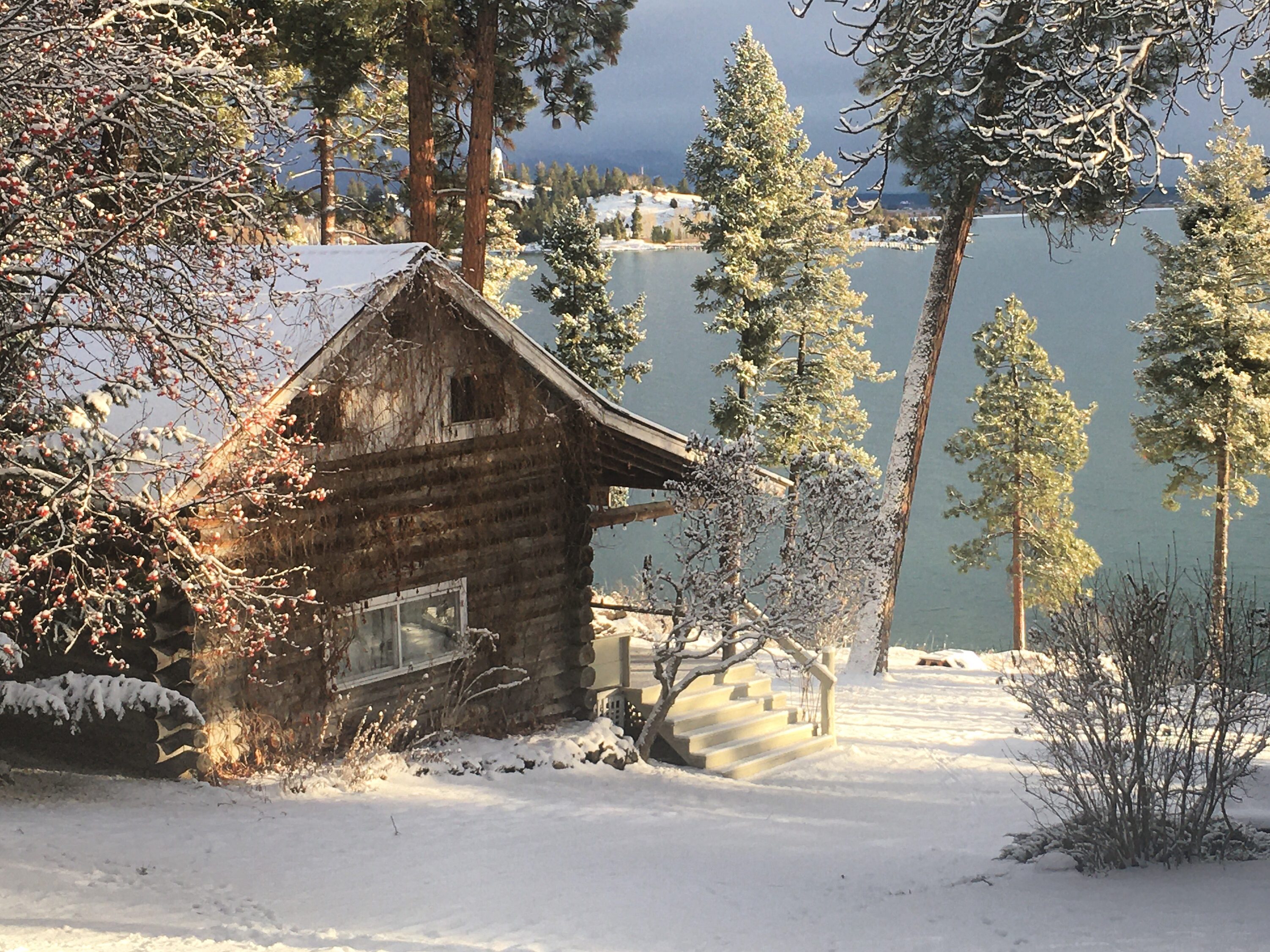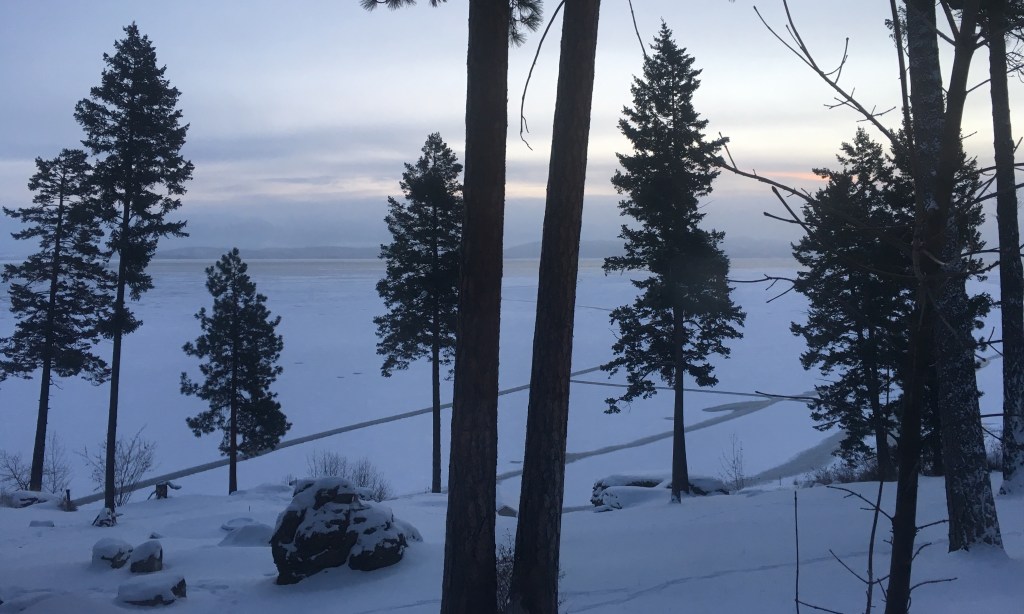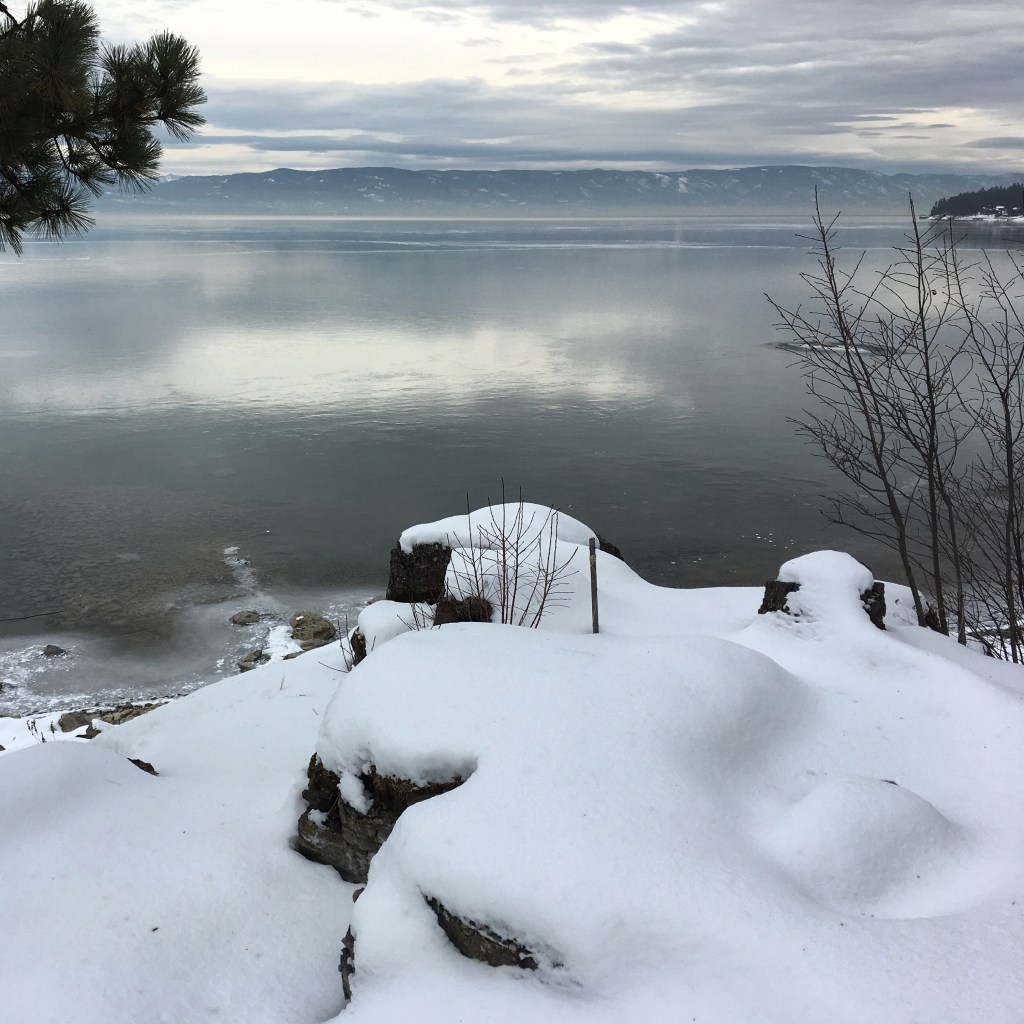
I sit by the window with my morning coffee. It is quiet except for the hum of the fan in the old wood stove. The sun brightens the pages in my lap, Madeleine L’Engle’s Glimpses of Grace. The shadow of a bare Virginia Creeper branch moves back and forth across the page. I wonder if I could capture it with my phone, this shadow. It is intricate and clearly defined as it moves to the other page, its range limited by the branch’s attachment to the cabin. The sun climbs higher, the breeze shifts, and so the shadow-design on my pages.

I found this yellow-paged copy in a little side-street bookstore in town. The books rise nearly to the ceiling in old wood and metal cases, a mixture of gems and junk organized loosely by genre. There may be three feet between the walls of bookcases and the lighting is dim, the only window at the front of the store. It smells of old books, dust, and lunch heated in a microwave. This book sat nearly out of reach, in one of the Nonfiction sections, and I almost missed it. It caught my eye as I made my way through the labyrinth from the back to the door. Next to it, Kathleen Norris’ Dakota: A Spiritual Geography. Two gems waiting for me. The owner of the shop had to ponder the question when I asked the price of each.

By afternoon the sun has disappeared and clouds lie thick in front of the mountains. The temperature has not risen above 12. More snow is on its way. There is something about winter’s stark beauty in this place that captures you, instills wonder, even invigorates, but today is an Emily Dickinson kind of day.
There's a certain Slant of light, Winter Afternoons – That oppresses, like the Heft Of Cathedral Tunes – Heavenly Hurt, it gives us – We can find no scar, But internal difference – Where the Meanings, are – None may teach it – Any – 'Tis the seal Despair – An imperial affliction Sent us of the Air – When it comes, the Landscape listens – Shadows – hold their breath – When it goes, 'tis like the Distance On the look of Death – Emily Dickinson
I remember the first time I read this poem in my California high school English class, the flood of memories that came . . . childhood winter afternoons in that little wooded Montana town that felt just as she was describing. The gray walks home from the grade school on icy sidewalks between walls of snowbanks. Hat over my ears, cheeks cold, legs chapped at the tops of my snow boots, my friend bumping and giggling at my side. In that first reading I was drawn specifically to the poet’s choice of “winter afternoons,” knowing immediately that yes, they had indeed felt different than dark winter mornings getting ready for school, or winter evenings back home beside the fire of family at the supper table or shared bedroom with a sister. They felt like homesickness, an awareness for the first time of a self apart from all others. A deep self. And then it would pass. I remember wondering about this connection between landscape, light and shadow, and the human heart . . . after reading Emily’s words. And I remembered something else too, something I hadn’t been old enough to understand when it happened, and we’d never talked about again . . .
It was a regular winter morning, except my friend hadn’t met me on the playground before school. My teacher seemed sad as we entered the classroom. Sad all day. My friend wasn’t at school. That night, Mom was crying in the kitchen with Daddy before supper. Something had happened. I asked what was wrong and Daddy said that my friend’s mom had died. Her dad was a teacher at Daddy’s school. Her mom went to ladies’ Four L Club with Mom. She made us Chicken Noodle Soup and peanut butter and grape jelly sandwiches for lunch on Saturdays! Now she was gone?
My friend didn’t come to school for more than a week. Her first day back we walked home from school together in the cold. We hadn’t gone far when a car full of high school boys, windows down, slowed and revved its engine beside us. The boy in the back seat hung out the window to his waist, twisting his head to the side and holding tire chains high above his head. Then they all laughed and the car sped away. My friend started crying and running. I ran and grabbed her hand and made her walk with me. We didn’t talk. She turned right at the end of the block toward her house.
When Daddy got home I went over to his chair where he was reading the paper and told him what had happened. He wanted to know what the car looked like. He was a school principal. I wanted to know why they did that. He told me then that my friend’s mother had been found in the woods and that it was a very sad thing. He said that he didn’t know why those boys would do something like that. I saw him wipe the edge of his eye with the side of his hand. He put the newspaper down and I climbed on his lap, my head on his chest, until supper. My friend moved a few weeks later.
I may not have understood it, but the image of the cruel boy with the chains had been captured on the pages of my mind, a dark shadow clearly defined.

“O Lord, You are the God of early mornings, the God of the late nights, the God of the mountain peaks, and the God of the sea. But, my God, my soul has horizons further away than those early mornings, deeper darkness than the nights of earth, higher peaks than any mountain peaks, greater depths than any sea in nature. You who are the God of all these, be my God. I cannot reach to the heights or to the depths; there are motives I cannot discover, dreams I cannot realize. My God search me." Psalm 139
Oh Becky… your words & distant sad memories..they always stay with us…🥰 ruthie
LikeLiked by 1 person
Thank you Ruthie for your words.
LikeLike
Such beauty and sadness, all at the same time. I’m so thankful that we have “the God of the early mornings” and all day and all night so we can be saved, comforted and healed.
LikeLiked by 2 people
Yes! Thank you Nancy.
LikeLike
“A dark shadow clearly defined.” —makes the light that much brighter.
Beautifully written.✍🏻
LikeLiked by 1 person
Thank you my friend.
LikeLike